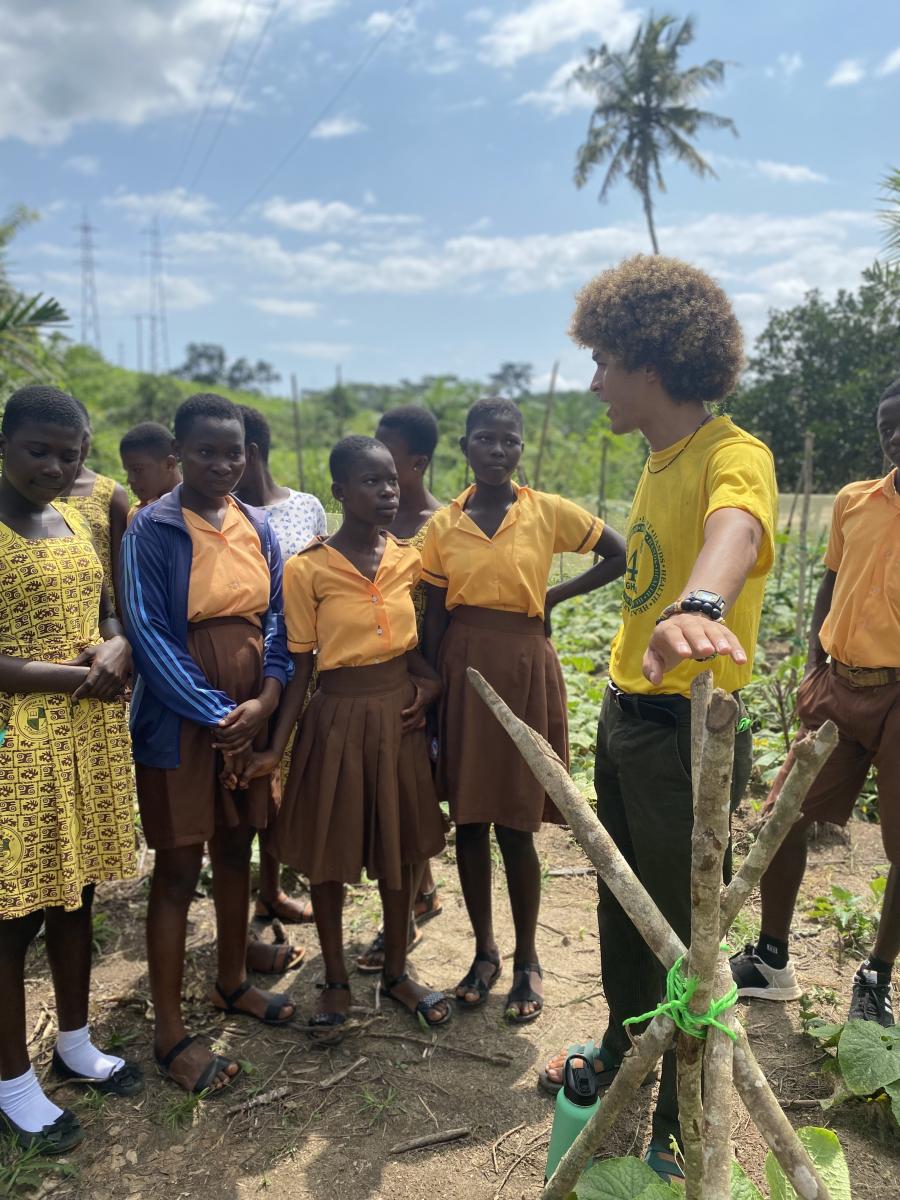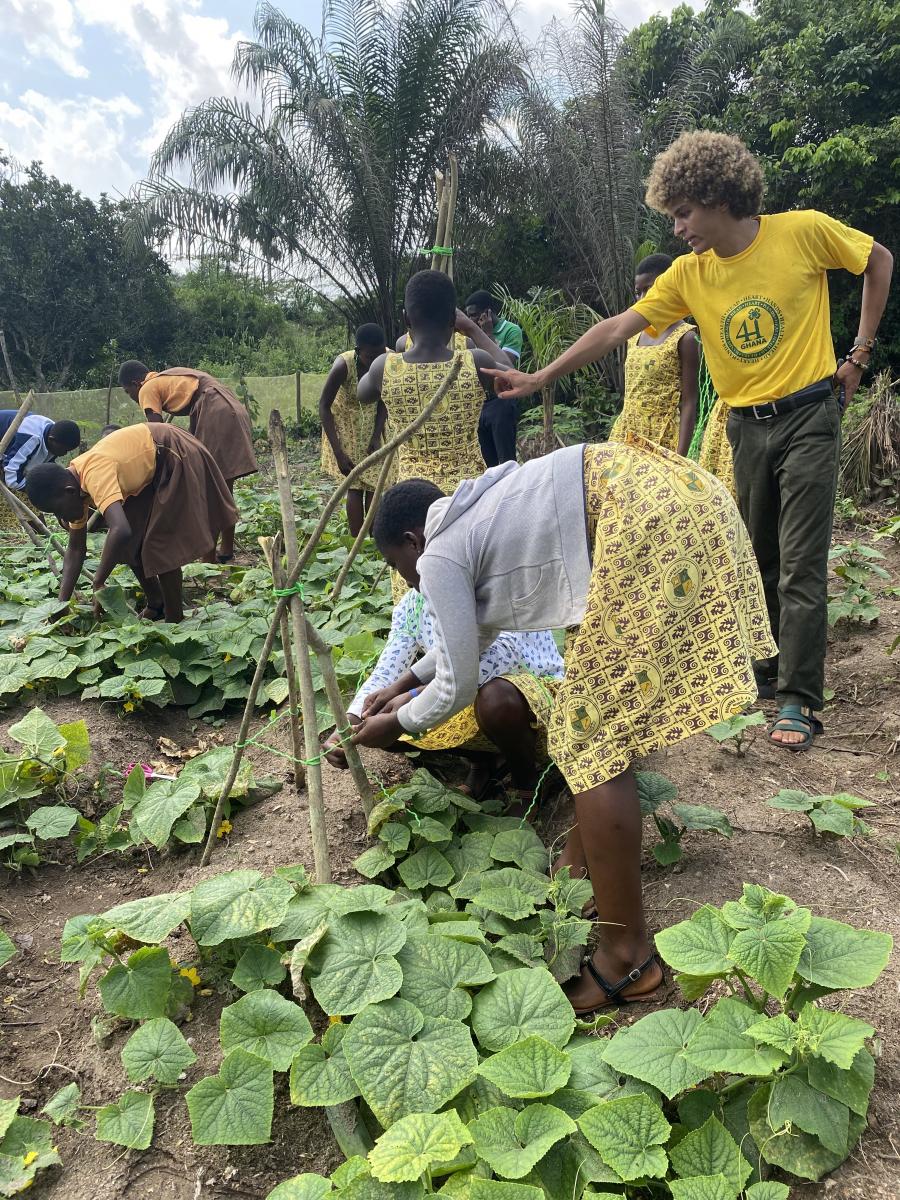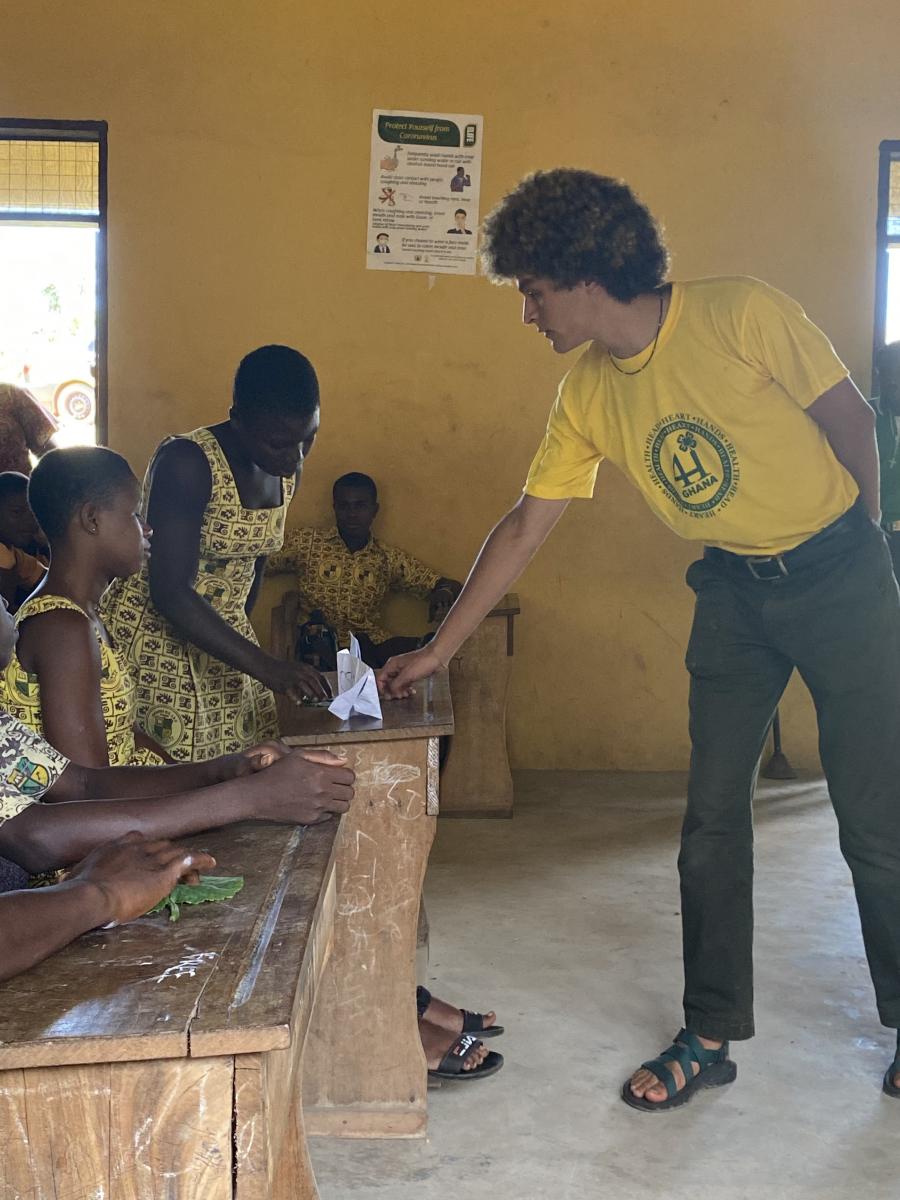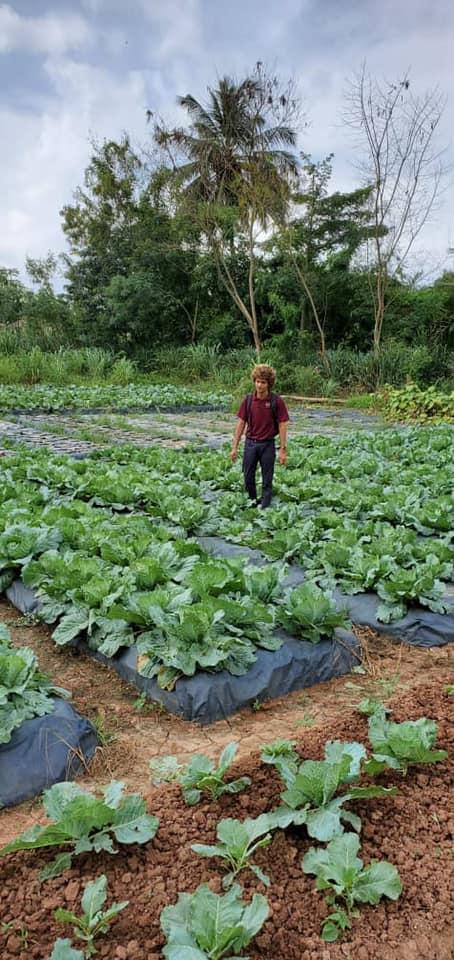
Meet Manuel “Manny” Catala

FAS: Why did you choose to pursue agriculture as your field of study?
Manny: I enrolled in my first agriculture class my junior year of high school. It was my teacher who opened the door for me into seeing what agriculture meant and what it provides for us. She was engaging in the class and she cared for her students. From that experience, it became a passion of mine to know where our food comes from. I ultimately decided to pursue agriculture with the idea in mind of becoming a teacher, so I pursued my degree in agriculture and extension education.
FAS: What's something from your degree that you're excited to be using in Ghana?
Manny: It's my pedagogy knowledge, like lesson planning, and trying to find different ways for students to connect to the content.
FAS: As a fellow, what do you think is essential to an ag teacher's toolkit?
Manny: Flexibility, being adaptable with the resources that you have available. The most valuable tool we have in Ghana is the garden because it's a tangible item the students can see. The garden has absolutely been the most beneficial teaching tool here in Ghana.
FAS: What inspires you in your new role as an IAEFP Fellow?
Manny: Working with my students and seeing how much they come alive. When they enter the school garden, they take ownership over it and their voices are heard. I try to promote that atmosphere with them and always remind them that this is their environment. They are the decision makers on what we do within the garden. When they hear that, I see their passion and their eagerness to learn.
FAS: Tell us about one of your activities or lessons in the fellowship program.
Manny: Sometimes when I'm not in class, I walk around to meet different community members, including a lot of farmers, and we talk about their fields. I’ve interviewed farmers about where they are within agriculture and their current growing practices and I try to see if there's any way I can assist and connect them with the Ministry of Food and Agriculture. For example, we have a training this month to teach them about micro-gardening.
FAS: What would you like for people to remember about teachers?
Manny: My favorite part about teaching is that no two days are the same. Every day is different and it’s a new opportunity for my students to learn and for us to learn together – and learning together is the best experience you can have as a teacher.
FAS: What have you appreciated about your time in the fellowship program that you want to teach your ag education peers?
Manny: Cross-cultural exchange is very important. There's a lot of online resources where teachers can learn about other cultures, so I would encourage other teachers to get into the mindset of being a global citizen and see what our neighbors are doing. A lot of the time in the United States, we focus on what we do in America and how that impacts us, but we are connected a lot more than people think, especially in the world of agriculture. Do research, try to identify those connections, and use those opportunities for students to make those connections as well.
Photo Highlights: Manuel “Manny” Catala




